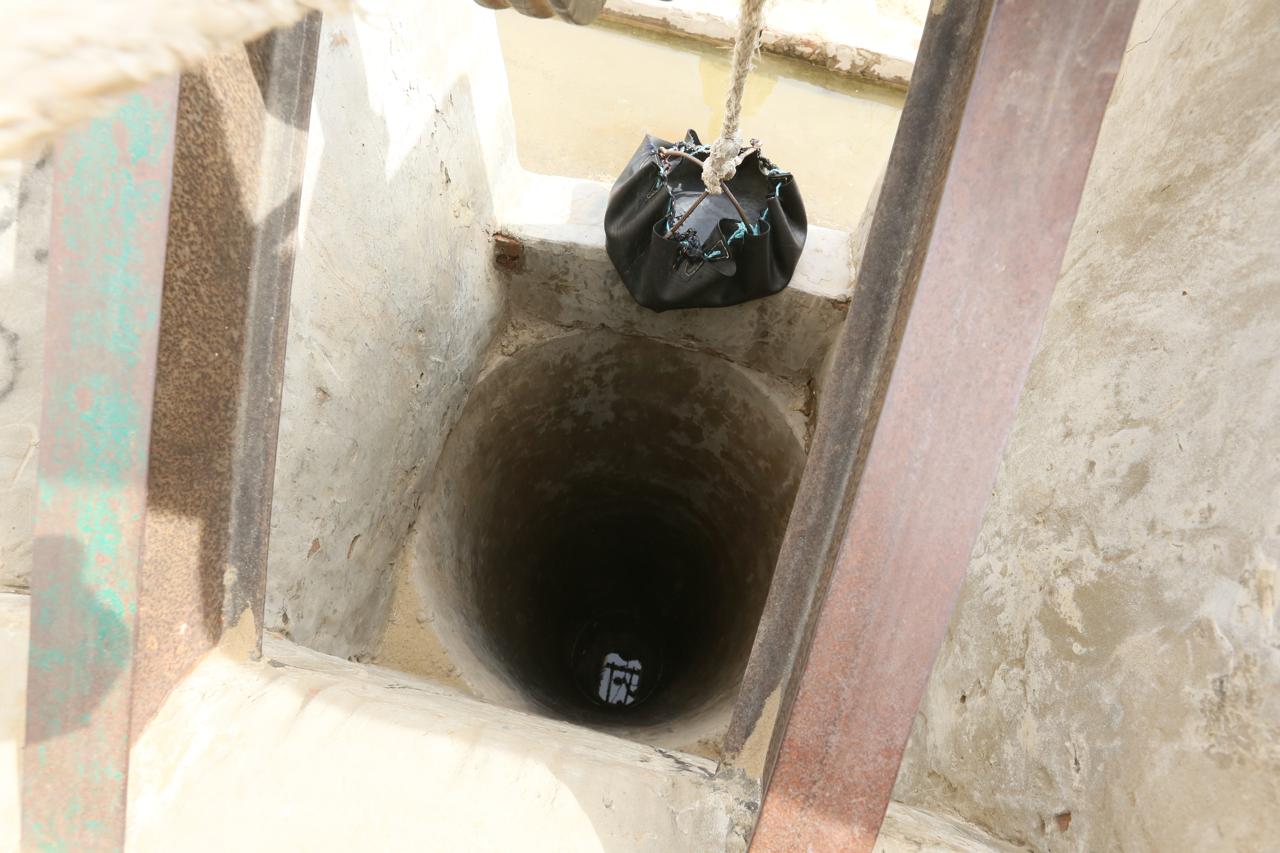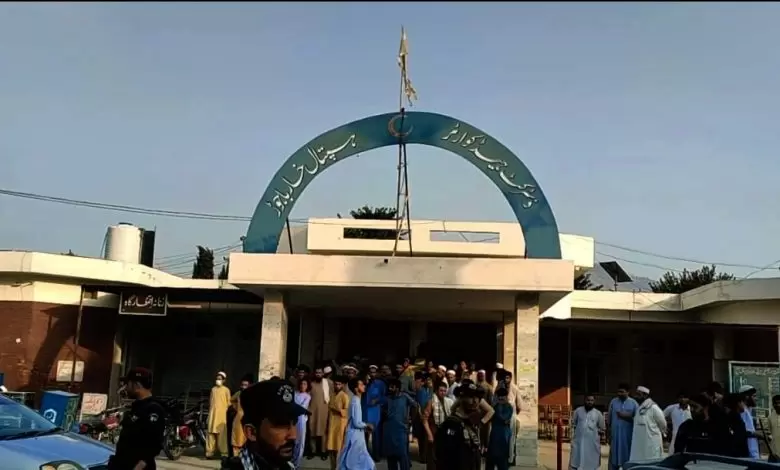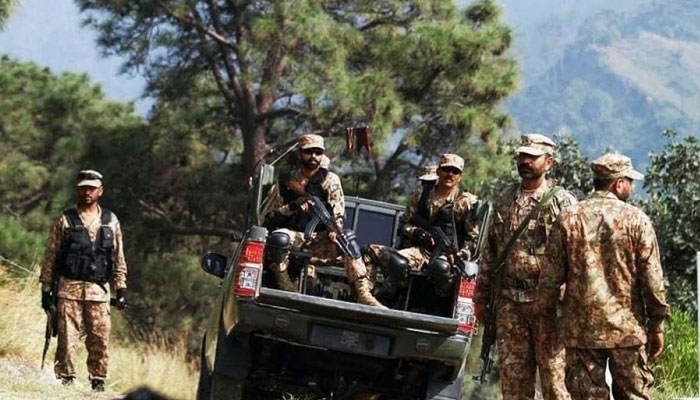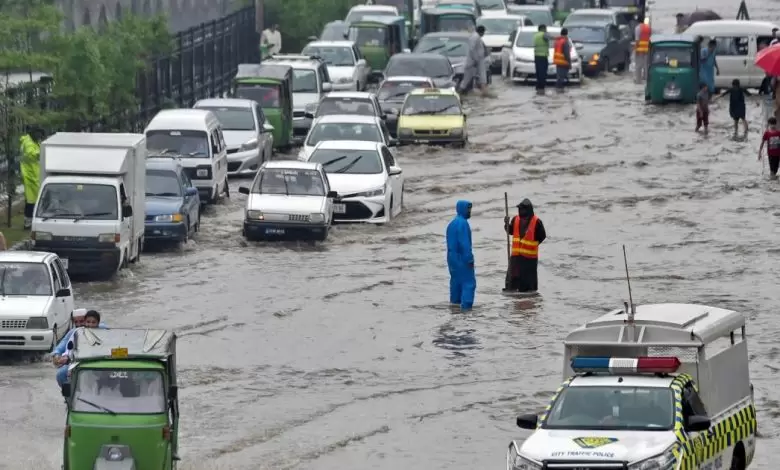
The Thar Desert, stretching across the southeastern border of Pakistan and the northwestern border of India, covers an expansive area of 200,000 square kilometers (approximately 77,000 square miles), making it the ninth-largest desert in the world. Tharparkar, the largest desert region in Pakistan, is home to a population of 1.5 million people. Unlike other deserts, the Thar Desert is not barren or arid; during the monsoon season, the golden sand dunes of Tharparkar are transformed into lush green landscapes, captivating the onlookers.
However, despite its natural beauty, Tharparkar remains one of the most underdeveloped regions in Pakistan, ranking 32nd in socioeconomic indicators nationally. The district is often associated with hunger, famine, malnutrition, and deaths due to water scarcity. While these challenges exist, they are only part of the picture. Tharparkar is also one of the most fertile deserts globally, teeming with a variety of flora, fauna, and wildlife. The desert's diversity is remarkable; in some areas, sweet water can be found just 50 feet below the surface, while in others, it lies at a depth of 300 feet. However, this rich diversity is now under threat due to the advent of coal mining projects.
Coal mining in the Thar region of Sindh has had profound effects on the local population, touching on social, economic, and environmental aspects. Large-scale land acquisition for coal mining has displaced many local inhabitants, uprooting their homes and lands, and disrupting their basic infrastructure and livelihoods. The rapid transformation of the region has also impacted local culture, traditions, and ways of life, with external interventions bringing about significant social changes.
Akash Hamirani, a social activist and educator from a village in Tharparkar, is actively spreading awareness about climate change and is critical of the coal projects in the region. According to Akash, the changes introduced in the name of development have led to an alarming increase in suicides among the local population, with two to three suicides occurring daily. He attributes this rise to the arrival of roads and mobile networks, which have heightened people's aspirations without providing the necessary resources to fulfill them, leading to despair and hopelessness.
While mining projects have indeed created employment opportunities in Thar, Akash points out that the majority of these benefits have gone to outsiders, leaving the local population with only low-level labor positions and no representation in decision-making roles. The loss of homes and agricultural lands has further destabilized the local economy, exacerbating the hardships faced by the residents. Akash rejects the media's portrayal of Thar as a region defined solely by thirst, hunger, and death, insisting that the people of Thar are self-sufficient, environmentally conscious, and possess a unique way of life that is now under threat.
Mehwish Laghari, a development sector worker from Sindh, highlights the specific impact of coal mining projects on women in Thar. She notes that the construction of dams in the village as part of the coal projects has polluted the natural underground water sources. Previously, women could easily fetch water from nearby wells, but now they must travel long distances to government-installed water plants, which are often closed two days a week, leaving their water needs unmet. This situation has also affected livestock, as water is no longer available for their sustenance.
The influx of outsiders has further restricted women's mobility, making it difficult for them to carry out their daily tasks and confining them to their homes. Mehwish also emphasizes that coal mining has deteriorated the climate in Thar, leading to an increase in respiratory diseases and other ailments among the local population. Unfortunately, the region lacks adequate medical facilities to address these health issues, adding to the community's woes.
Irshad Laghari, a journalist from Sindh, describes how coal mining has disfigured the Thar Desert. Two major coal projects are currently underway, displacing communities that have lived in the area for centuries. These communities have been relocated to modern villages established by the government, but Irshad explains that the people were reluctant to leave their ancestral homes. The government lured them with promises of a bright future, but many of these promises remain unfulfilled, leading to widespread disappointment. Irshad suggests that the government should reconsider expanding the coal project to additional blocks based on the experiences of the current ones.
The land acquisition for coal mining in Tharparkar was conducted under the Land Acquisition Act of 1894, a colonial-era law that grants the government the power to acquire citizens' land. However, this law has been criticized for its lack of public consent, fair compensation, and transparency, leading to issues of forced evictions. A report by Human Rights Watch highlights that this outdated law does not meet modern requirements or international human rights standards, calling for immediate reforms. In Thar, issues of transparency and fair compensation have arisen during the acquisition of local lands, and these concerns need to be addressed.
Muhammad Badar Alam, a former journalist now working with the research organization PRIDE, criticizes the media's portrayal of Thar and the coal projects. He argues that the media only presents what the government or the companies involved want to be shown, creating a distorted image of Thar. Badar believes that the media's portrayal of the Thar coal projects as a boon for national economic development is nothing more than propaganda, and the real problems faced by the local people are being ignored. While some efforts are being made by private media at the grassroots level to highlight the issues, the mainstream media remains focused on public relations.
The Thar coal fields, spanning 9,100 square kilometers, contain over 175 billion tons of lignite, a lower-quality and more polluting type of coal. These lignite reserves are among the largest in the world. According to a report by Global Energy Monitor, China has the highest number of coal power projects worldwide, followed by Indonesia and Bangladesh. In Pakistan, these projects are being developed under China's Belt and Road Initiative globally and the China-Pakistan Economic Corridor (CPEC) locally.
Dr. Hassan Abbas, a water expert, points out that while coal projects are being abandoned worldwide due to their environmental impact, Pakistan is expanding its coal mining activities. He explains that the Thar coal project involves open-pit mining, where large pits are dug into the ground, and water is extracted and dumped onto the surface. This water, accumulated in a dam, is highly toxic and unsuitable for use. Geologists estimate that this water is approximately fifty million years old. As a result, the land is becoming polluted, the underground water level is decreasing, and plants and wildlife are suffering, leading to the death of livestock.
On the other hand, the Sindh government claims that the Thar coal project is transforming Pakistan's future. The government asserts that the royalty from the coal project will be used for the development of Thar. Efforts are being made to install RO plants to provide clean drinking water, supply electricity to every village, and establish infrastructure such as the Mai Bakhtawar Airport in Islamkot and a network of high-quality roads in Thar. The Thar Foundation has been established to benefit those affected by the coal projects, with a focus on creating employment and educational opportunities for residents.
However, social activists in Tharparkar counter the government's claims, arguing that their problems remain unresolved and that they have been deprived of the benefits of development. They assert that the coal project has brought more hardships than progress, displacing them from their lands and disrupting their lives. The activists demand fair compensation for their lands and solutions to the problems they face.
The impacts of coal mining in Thar are multifaceted, affecting the lives of local people from various angles and creating significant challenges for their development. To address these issues, there is a need for government policies that prioritize the involvement of the local community, along with stringent environmental protection measures.
1.jpeg)
09 Jul, 2025






1.jpeg)
09 Jul, 2025